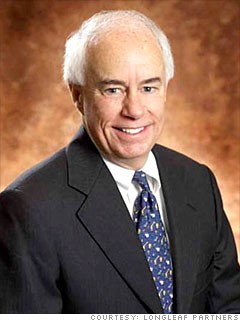If you own stock in Dell or the Memphis based Southeastern Asset family of mutual funds including Longleaf Partners Fund, then you might be interested in this story.
Thanks in no small part to FedEx and its delivery system, Dell was THE hot custom personal computer company and one of the hottest stocks of the 1990s, but it has been one of the biggest losers in recent years. And Southeastern Asset, run by Staley Cates and Mason Hawkins, is Dell’s biggest investor after founder Michael Dell. The firm owns 147 million shares of Dell, or about 8.5 percent of the shares outstanding.
On Friday, Southeastern posted a letter on its website. It objects to the proposed buyout price of $13.65 per share, and says the true value of the company that shareholders should receive is more like $24 a share. Dell traded above $30 in 2007 and above $40 in 2006. It hit $10 last year but came back a bit on speculation of a buyout. If you bought the stock late last year or in 2009, when it previously dropped below $10, you would make money on the buyout. But Longleaf and many other mutual funds bought shares when Dell was a much higher price in expectation that it would go higher.
“We are writing to express our extreme disappointment regarding the proposed go private transaction, which we believe grossly undervalues the company,” the letter says. It was included in a filing with the Securities and Exchange Commission.
Southeastern “will not vote in favor of the proposed transaction as currently structured,” adding: “We retain and intend to avail ourselves of all options at our disposal to oppose the proposed transaction, including but not limited to a proxy fight, litigation claims and any available Delaware statutory appraisal rights.”
Southeastern called the proposed deal “an effort to acquire Dell at a substantial discount to intrinsic value at the expense of public shareholders.”
The buyout group includes Michael Dell, Silver Lake Partners, and Microsoft.
Southeastern’s investment philosophy holds that “Mr. Market” undervalues stocks sometimes and creates opportunities for funds such as Longleaf Partners to buy them and hold them until they reach their true value.
This is the second time in less than a year that Southeastern has taken on the head of one of the companies in its portfolio. Last year it was Chesapeake Energy and CEO Aubrey McLendon that was their target. McLendon eventually stepped down.
